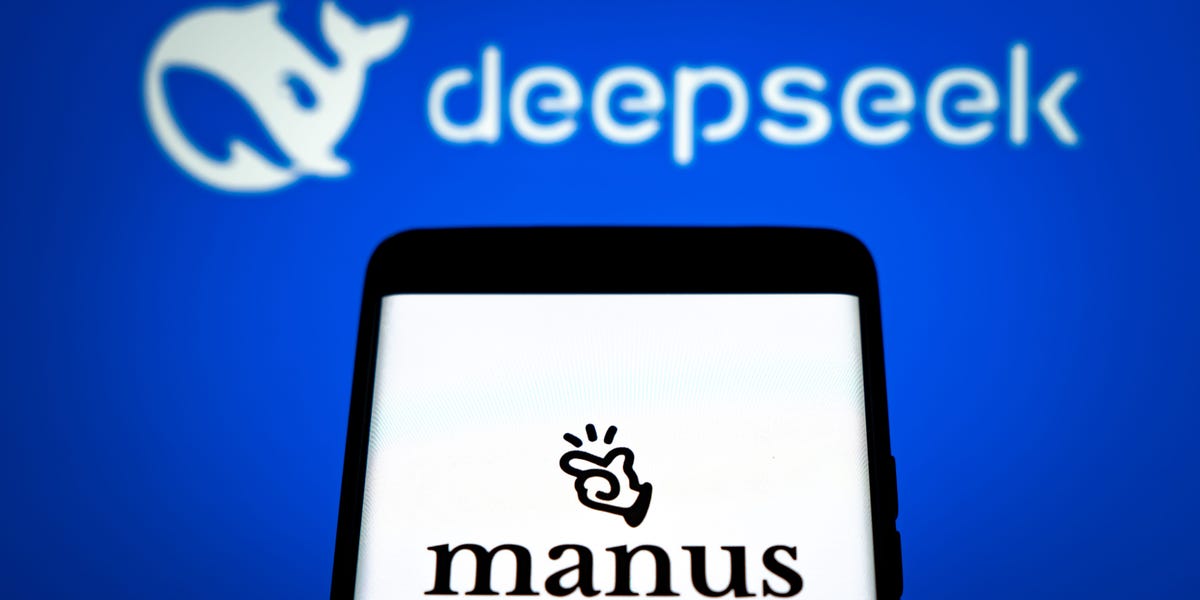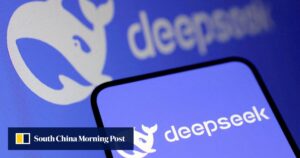Five Chinese AI Models to Monitor Amidst China’s Intensifying AI Competition

China’s Exciting AI Landscape: Five Key Players
China’s artificial intelligence (AI) sector is rapidly evolving, producing a wave of advanced models that challenge leading companies in the U.S., impacting their stock prices significantly. Recently, new entrants like Manus have emerged, which some experts believe represent a pivotal moment for Chinese artificial intelligence, much like what DeepSeek achieved. Here is a look at five crucial players making a mark in the industry today.
1. DeepSeek’s R1
DeepSeek was one of the first Chinese startups to create a significant disruption in the AI field. Launched in January, its R1 model instigated a drop in the market value of several U.S. tech companies, igniting discussions about whether American firms are losing their edge in AI. Founded in 2023 by Liang Wenfeng, a hedge fund entrepreneur, DeepSeek has made headlines with its innovative approach.
After investing heavily in thousands of Nvidia chips, the R1 model was developed on the V3 base, utilizing about 2,000 H800 chips at a cost of approximately $5.6 million. This amount is considerably less than what companies like Meta and OpenAI are spending on their AI initiatives. Despite the lower financial investment, DeepSeek claims its R1 model can perform at levels comparable to ChatGPT’s top models.
The launch of R1 had a swift effect on the AI chip market, causing Nvidia’s stock to drop by nearly 17%, representing a loss of billions in market value. Prominent figures in the tech industry, including Marc Andreessen from Andreessen Horowitz, likened DeepSeek’s achievement to a watershed moment in the technology race, while others noted that the model has limitations when addressing sensitive topics in China.
2. Alibaba’s QwQ-32B
Alibaba is positioning itself as a significant player in AI, particularly after it recently open-sourced its QwQ-32B model. Available since early March, this model requires less data than DeepSeek’s offerings and has resulted in an 8% stock increase for Alibaba within just two days.
The QwQ-32B model is noted for its efficiency, featuring one-fifth the parameters compared to DeepSeek’s R1. By being open-source, it allows broad access and innovation across platforms like Hugging Face. While Alibaba’s stock has soared approximately 67% this year, it still lags behind Amazon in market capitalization.
Moreover, Alibaba’s recent partnerships, including a collaboration with Apple to enhance AI features for iPhones in China, have contributed positively to its stock performance. The company announced plans to invest around $53 billion in AI and cloud infrastructure over the next three years, indicating a long-term commitment to AI development.
3. Tencent’s Yuanbao
Tencent has also made significant strides with its AI chatbot Yuanbao, which surpassed DeepSeek to become the top downloaded free app in China’s iOS App Store. As a major player in social media through its WeChat app with around 1.4 billion users, Tencent has leveraged its platform to increase the accessibility of Yuanbao.
Yuanbao achieved remarkable success after integrating functionality with WeChat, becoming the third most downloaded free application in China, following DeepSeek and ByteDance’s Doubao. Additionally, Tencent has introduced a faster version, Hunyuan Turbo, enhancing user experience beyond that of DeepSeek.
4. Manus
Manus is a newer entrant that has garnered significant attention in China’s AI landscape. Developed by a startup called Monica, considered a subsidiary of Butterfly Effect, Manus purports to be the world’s first fully autonomous AI agent. Unlike typical chatbots, it can execute complex tasks through a single prompt.
While the performance claims of Manus suggest it outperforms rivals like OpenAI’s Deep Research model, critics have raised concerns over the accuracy and reliability of its functionalities. Some experts see Manus as a revolutionary development, while others caution against overhyping its capabilities. Access to Manus currently requires an invitation, adding to its allure.
5. Baidu’s Ernie 4.5 and Ernie X1
Baidu, often referred to as China’s equivalent of Google, has just rolled out two new versions of its Ernie AI model. Ernie X1, which is positioned to deliver performance similar to DeepSeek’s R1 model, claims to do so at only half the cost. Ernie 4.5, on the other hand, boasts improvements that allegedly surpass GPT-4.5 in several benchmarks while being priced at just 1% of the cost.
With plans to integrate both models into its search engine and broader product suite, Baidu is also taking steps to make its foundational model open-source by June. This strategic move could open new avenues for collaboration and innovation within the AI industry in China, continuing its competitive edge in the sector.






